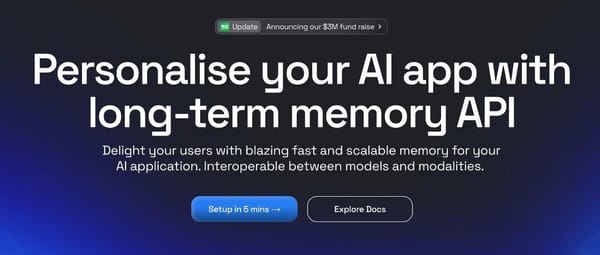[Issue 3605] Boost Your AI Development Skills with Specification-Driven Development
![[Issue 3605] Boost Your AI Development Skills with Specification-Driven Development](/content/images/size/w1200/2025/10/img_001-613.jpg)
Exploring New Trends in AI Development at the End of 2025
Specification‑Driven Development and SpecKit

---
Introduction
By late 2025, the AI development space has entered a particularly intriguing phase. Investments from industry giants like Nvidia, OpenAI, and AMD dominate headlines, alongside debates over whether an AI bubble is nearing its burst.
Discussion about AI’s role in software development has evolved. Extremes like:
- “Developers will be replaced”
- “Coding will only require prompts”
...are giving way to more balanced, pragmatic perspectives.
One emerging approach is Specification‑Driven Development (or Requirements‑Driven Development).
In this article, you’ll learn what it is, how SpecKit implements it, why it could be a key AI tool, and where its limitations lie.
📦 SpecKit repository: https://github.com/github/spec-kit
---
The State of AI Development
Broadly, AI development tools fall into two categories:
1. Vibe Coding
Prompt → AI generates a complete application (sometimes deployed instantly).
Focus: “One‑click” creation.
2. AI‑Assisted Development
Using AI within traditional workflows for:
- Code completion
- Code generation
- Tool invocation
Popular options:
- Visual Studio Code + GitHub Copilot
- Cursor
- Windsurf
These IDEs inject extra context — e.g., file diffs, related files, and custom instructions — improving AI output relevance.
➡ Tip: If you’re new to AI‑assisted coding, start here. It helps you learn where AI excels and where it falls short.
Read more: Maximizing Your Productivity with AI Agents
---
Life Is Good… But Could Be Better
Advanced users often create custom instruction files to standardize workflows and make AI output predictable.
Kiro takes this further — making the specification itself central to development.
Instead of scattered instructions, actively evolve a living specification via developer–AI interaction.
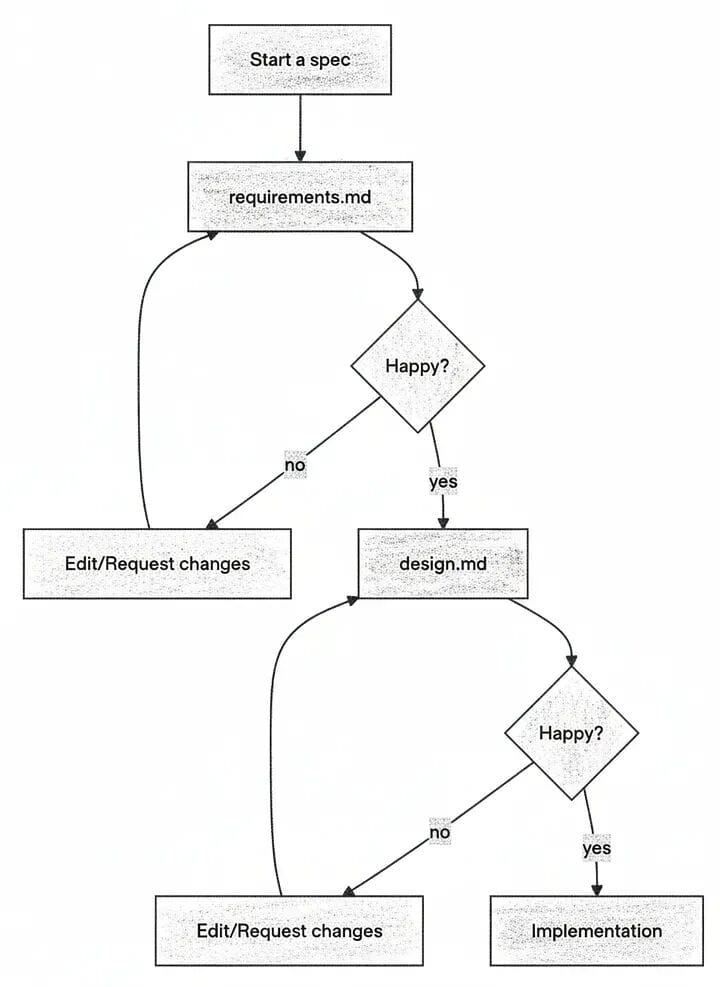
Kiro IDE: Specification‑centric approach (Source: Kiro.dev)
Adheres to: Requirements → Design → Implementation.
---
Conclusion
Specification‑Driven Development offers a disciplined, sustainable way to use AI in software creation.
Tools like SpecKit and Kiro demonstrate the benefits of moving from ad‑hoc prompts toward structured specifications — resulting in consistent, team‑friendly outputs.
For multi‑channel publishing, open‑source ecosystems such as AiToEarn官网 integrate:
- AI content generation
- Cross‑platform publishing
- Analytics
- Model ranking
This enables monetization across platforms like Douyin, Kwai, WeChat, Bilibili, Xiaohongshu, Facebook, Instagram, LinkedIn, Threads, YouTube, Pinterest, and X (Twitter).
---
Introducing SpecKit
SpecKit — inspired by Kiro’s approach — is:
- Open‑source
- Workflow‑driven (prompts + shell scripts)
- IDE‑integrated
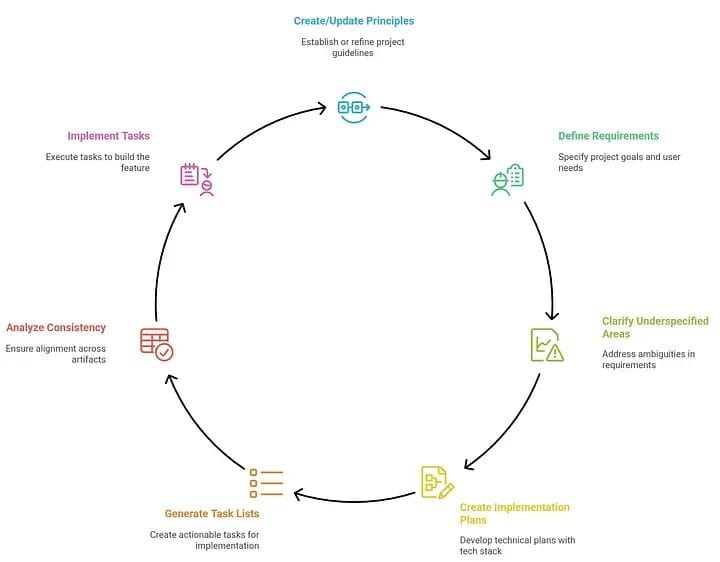
SpecKit workflow: circular design for iterative development
Workflow Phases
- Constitution — Core project rules
- Specification — Functional requirements
- Clarification — (Optional) Resolve ambiguities
- Plan — Artifact/design generation
- Checklist — (Optional) Quality checks
- Task — Break down into executable units
- Analyze — (Optional) Consistency checks
- Implement — Code generation
---
Example Workflow
Installation Options
Method A — uv
uv tool install specify-cli --from git+https://github.com/github/spec-kit.gitMethod B — uvx
# New project
uvx --from git+https://github.com/github/spec-kit.git specify init PROJECT_NAME
# Existing project
uvx --from git+https://github.com/github/spec-kit.git specify --hereNote: uv tool is recommended for one‑time global installation.
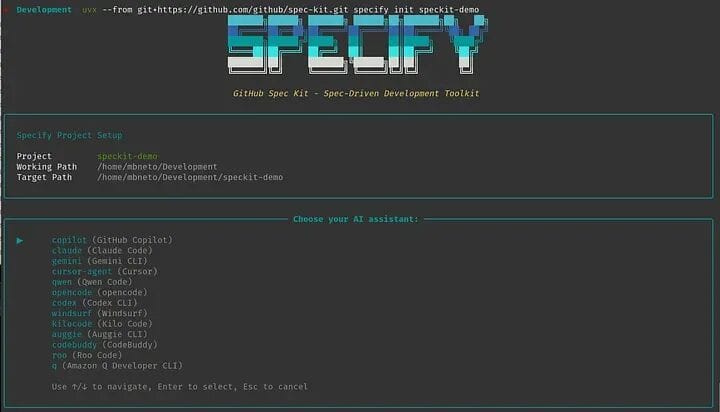
Installing SpecKit
---
Constitution — Basic Guidelines
Non‑negotiables: core coding rules, structures, library choices, and test conventions.
Similar to `copilot-instructions.md`.
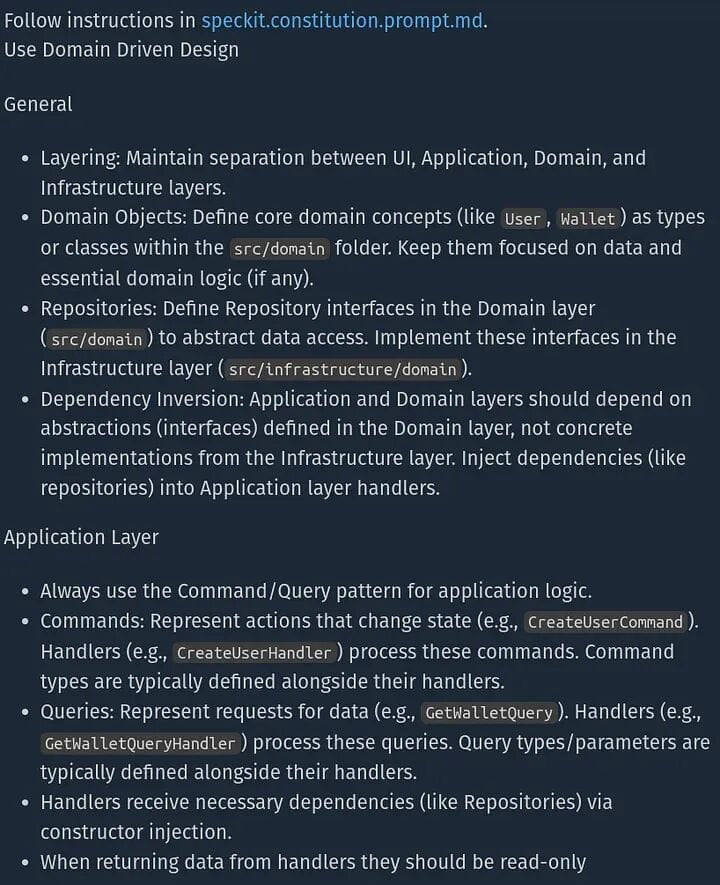
Sample Constitution file
SpecKit updates:
- `constitution.md`
- Plan and Task templates
- ...and logs changes automatically.
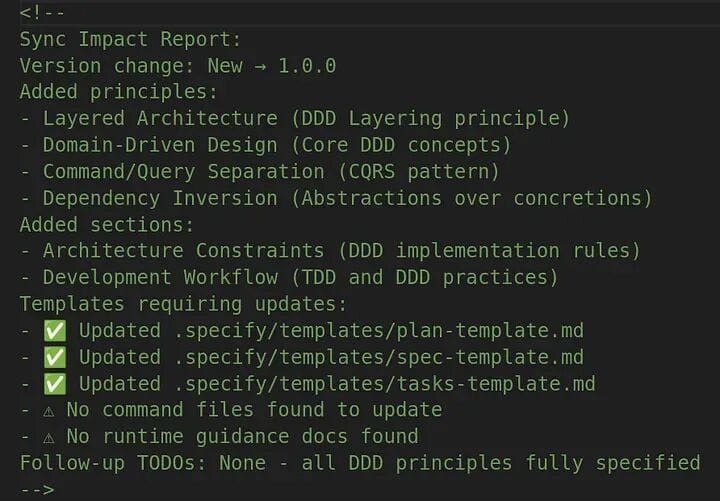
Automatic changelog in Constitution
---
Specification — Functional Requirements
Focus on What and Why, not How.
Example: movie tracking app specifications.

Adding application specifications
SpecKit creates:
- New Git branch
- `spec` folder for this feature set
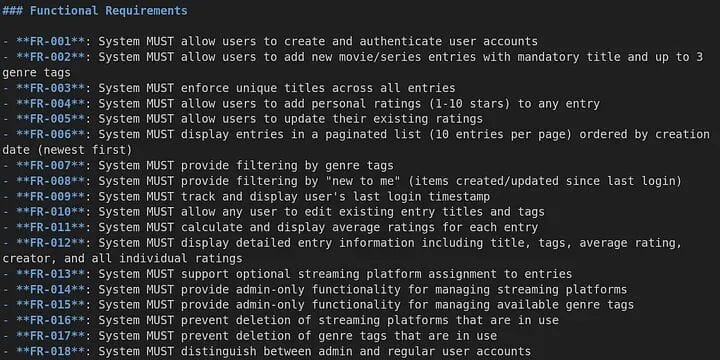
Generated user stories and feature requirements
---
Clarification — Resolve Ambiguities
Runs a 5‑question check across Constitution + Specification.
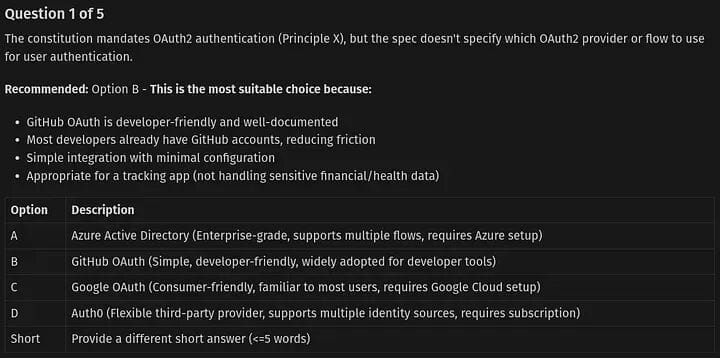
Guided clarification questions
Updates project artifacts with your answers.
---
Plan — Implementation Strategy
Combines prior steps to:
- Research
- Design data models
- Draft API contracts
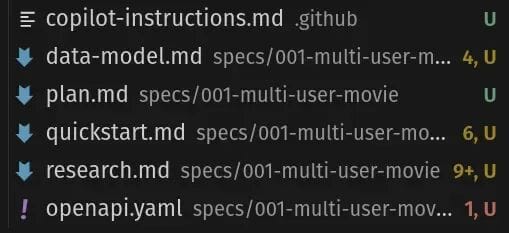
Generated artifact: `data-model.md` proposal
---
Checklist — Quality Assurance
Choose a topic (e.g., Security, UX, API).
Answer 3 questions → receive checklist items.
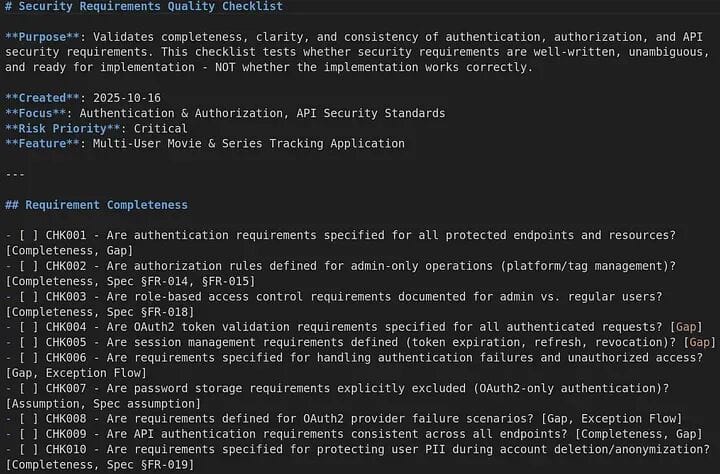
Security checklist output
Run multiple times for different topics.
---
Tasks — Work Breakdown
Generates user stories + task list, marking parallelizable tasks `[P]`.

Parallel execution indicators
---
Analyze — Consistency Validation
Cross‑checks Constitution, Specification, and Tasks.
Resolves high‑priority inconsistencies before coding.
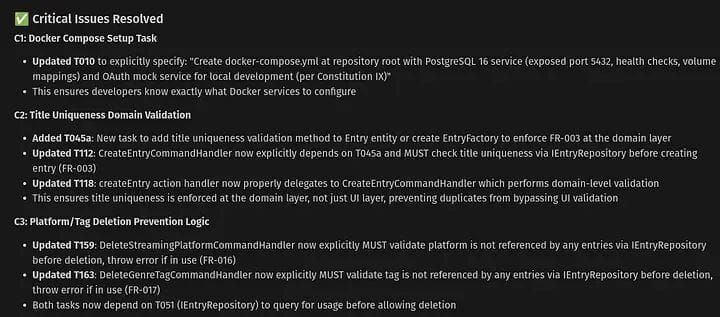
Critical issues resolved
---
Implementation — Code Generation
Checks for unfinished checklist items before starting.
Options for review:
- Auto‑accept files
- Review per task
- Review after all tasks complete

Implementation progress tracking
---
My Review — TL;DR
Verdict: Positive.
SpecKit delivers standards‑compliant, runnable solutions faster than manual coding.
Strengths:
- Detailed, phased workflow
- Clarify + Analyze stages
- Constitution keeps output style aligned
Limitations:
- May infer unintended conventions (e.g., `ISomething` interfaces)
- Doesn’t add unstated requirements
- Best for smaller feature scopes in brownfield projects
Process Complexity: Workflow = 5–8 steps; repeated runs may feel formalistic for “vibe coders.”
---
Final Note
For structured AI‑assisted development + multi‑platform publishing, AiToEarn官网 complements SpecKit by enabling:
- AI content generation
- Publishing to Douyin, Kwai, WeChat, Bilibili, Xiaohongshu, Facebook, Instagram, LinkedIn, Threads, YouTube, Pinterest, and X (Twitter)
- Analytics + model ranking
This combination balances process rigor and creative reach.
📖 Original article: https://itnext.io/up-your-ai-development-game-with-spec-driven-development-f5175cf59c7c




